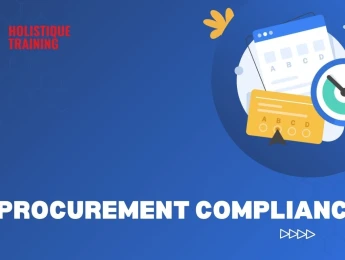In supply chains, strategic purchasing consolidates purchasing power to find the best market values and align business goals and purchasing strategies. With strategic purchasing, you can reduce total costs and transform your entire procurement process. Supply management balances supplies and demand to stabilise prices and promote productivity.
This course provides an overview of the development and implementation of practical procurement strategies. By establishing your strategic direction and then analysing pricing, costs, and your value chain, you will develop the skills to utilise effective procurement strategies best.
Upon completion of this course, participants will be able to:
- Examine your strategic direction and supply chain maturity.
- Analyse the components of pricing and costs.
- Develop an understanding of price and cost estimation methods.
- Use value chain analysis to minimise non-value-adding activities and costs.
- Produce a plan for implementing a TCO analysis.
This course is intended for:
- Purchasing and Procurement professionals
- Contract Managers and Administration
- Project Managers
- Anyone involved in planning and managing purchasing and contracts
This course uses a variety of adult learning styles to aid full understanding and comprehension. Participants will review case studies to highlight key areas of importance and possible areas for faults. They will be supplied with the best tools required for learning exercises to improve their skills. Participants will analyse the examples to thoroughly understand how these skills, techniques and methods apply in the workplace.
Day 5 of each course is reserved for a Q&A session, which may occur off-site. For 10-day courses, this also applies to day 10
Section 1: Set Your Strategic Direction
- Define your supply management mission and vision.
- Describe the Gartner 5-stage logistics Maturity Model for the supply chain.
- Discuss how to develop more strategic procurement skills.
- Elaborate on the required competencies for supply management.
- Examine the process of developing a spending analysis.
- Understand how to use Pareto (ABC) analysis to classify forecast items.
Section 2: Pricing
- Discuss common supplier pricing models.
- Define and compare Cost analysis and Price analysis.
- Examine how to work with Producer Price Indexes (PPI) and Consumer Price Indexes (CPI).
- Compare PPI and CPI.
- Describe how to estimate the cost in relationships.
Section 3: Analysing Costs
- Describe common cost-estimating methods.
- Identify the main components of cost.
- Discuss the importance of supplier overheads.
- Examine sources of cost information and analyse supplier cost breakdowns.
Section 4: Value Chain Analysis
- Review global labour markets and rates.
- Explore the impacts of currency exchange rates.
- Examine Cost Volume Profit (CVP) analysis.
- Define fixed and variable costs.
- Describe value chain analysis.
- Discuss methods for assessing supplier value.
Section 5: Total Cost of Ownership (TCO)
- Explore trends and changes in supply management.
- Define TCO.
- Identify TCO methods and implementation.
- Discuss barriers to TCO.
- Examine the total cost modelling of your supply chain.
Upon successful completion of this training course, delegates will be awarded a Holistique Training Certificate of Completion. For those who attend and complete the online training course, a Holistique Training e-Certificate will be provided.
Holistique Training Certificates are accredited by the British Assessment Council (BAC) and The CPD Certification Service (CPD), and are certified under ISO 9001, ISO 21001, and ISO 29993 standards.
CPD credits for this course are granted by our Certificates and will be reflected on the Holistique Training Certificate of Completion. In accordance with the standards of The CPD Certification Service, one CPD credit is awarded per hour of course attendance. A maximum of 50 CPD credits can be claimed for any single course we currently offer.
- Course Code PO1-126
- Course Format Classroom,
- Duration 5 days














